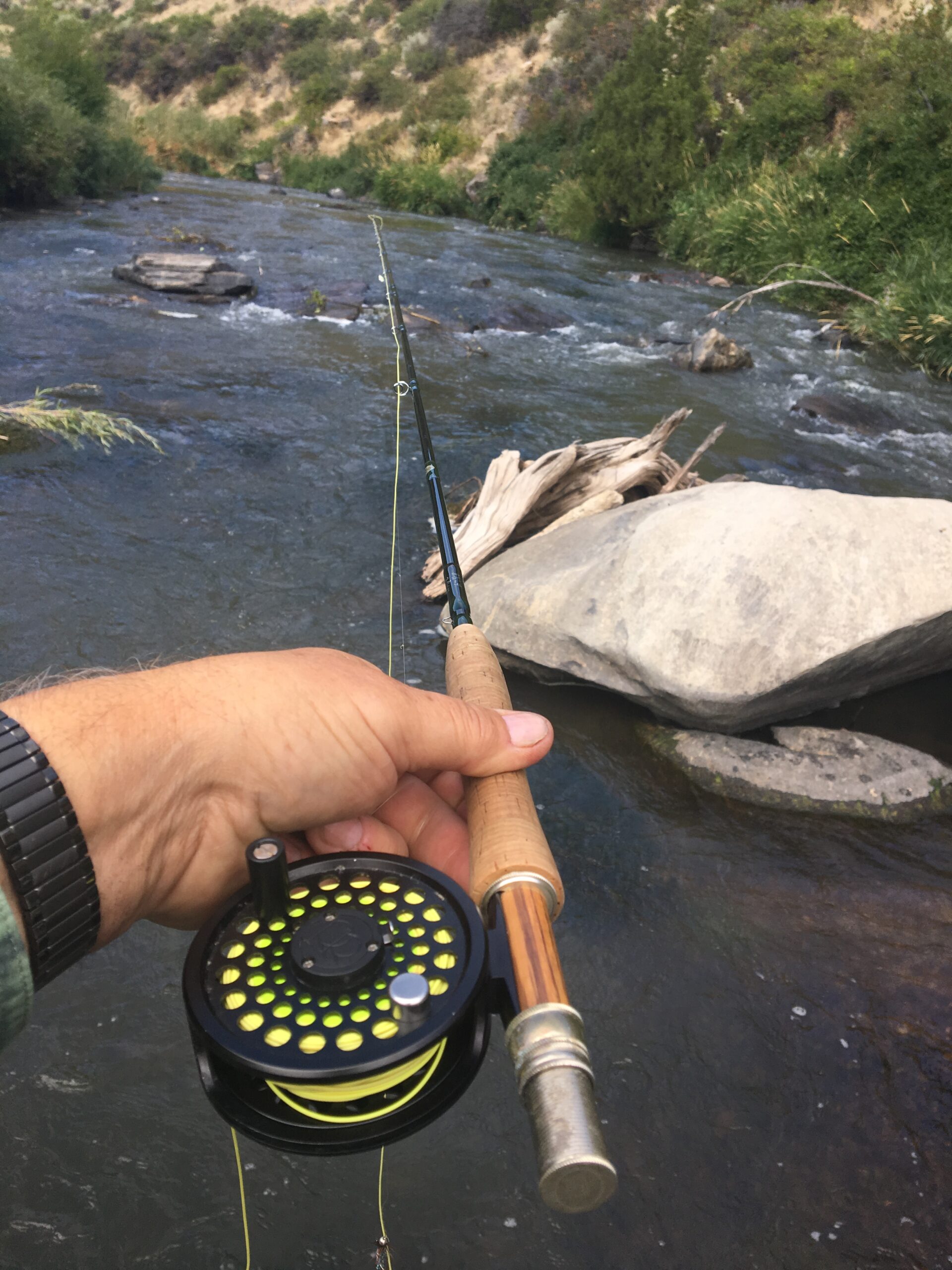Fly fishing is a year around sport. If you want to be a great fly guy, you need to stay on top of your gear, skills, and knowledge. You will never become perfect, but you can get close with education and practice. 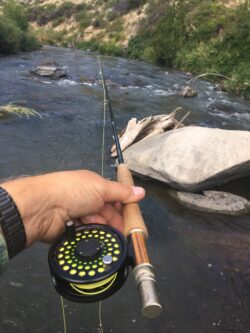
The only way to learn how to catch fish is to catch fish. Having a Mentor is a great way to learn. Listen, learn, and love every cast. You will learn the most when fishing is the toughest.
Fly gear has become more complex than ever. Originally, fly fishing was done with long sticks, bamboo, or whatever you had. The reel was a block of log attached to the stick. Flies were real bugs on a hook or primitive flies made of feathers and cord. Fly lines were made of waxed horse tail fibers that were braided together. Tippet was made from animal sinews.
A lot has changed since Daniel Webster and Izaak Walton cast a brace of wet flies. Today, we need to keep our gear in good working order and well protected.
The Fly Fishing Fun series will share tips about fly fishing. Even though many waters are frozen, and fishing is cold, you can start to upgrade and maintain your gear and grow your knowledge. Being a student of the sport will make you a better Fly Guy!
Here are some things to get you started!
Wash, reverse, and condition your fly line If you are using a double taper fly line, now is when you reverse it. The lines shape is the same at each end. Reversing it allows the line to last longer. Wash the line in a warm water bath. Use Dawn dish cleaner to remove the crud. Wipe and rinse the line. Now hang the line outside between two posts and allow to relax and dry. Use a cloth sprayed with Armor All, to wipe and condition your line. If the line is too chipped, inner core is exposed, or damaged/knotted, get a new quality line, and install.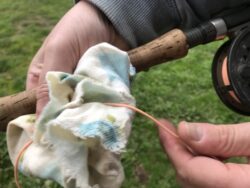
Reel cleaning and lube While the line is off the reel, inspect and clean the reel. A very light coating of oil helps. Too much oil simply attracts grit and dirt. Wax the metal portions to waterproof and make the reel friction free. Upgrade to a disc drag reel if you have not already done so. Check or replace your backing. Tighten and Loctite any screws.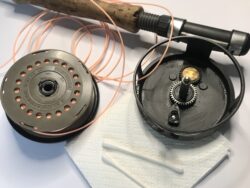
Clean and inspect your rods. Rods collect crud from use. Wash the entire blank, grip with soapy water, and rinse. Now inspect the rod for dings and scratches. Use a Q-tip to check the guides for grooves and cracks. Recoat the blank with a light protective clear coat. Smooth or replace any damaged guides. Store the rod in a cloth cover before putting it into a rod tube. If you don’t have a case or tube, make your own. The cloth cover reduces vibrations from transport, which can cause modern rods to fracture.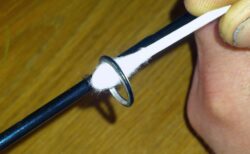
Help your gear help you catch more fish!
Montana Grant

